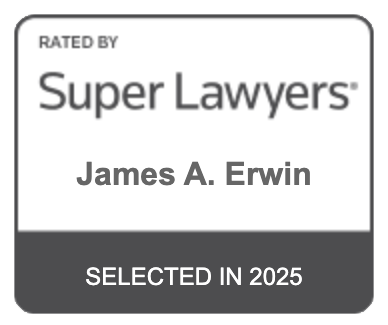Some form of eviction moratorium has been in place for the last 18 months in Illinois. As one of the last remaining states with an eviction moratorium in place, the Illinois Moratorium expired as of October 4, 2021. While housing providers have been able to file evictions for some time now, the rules have been constantly changing, and housing providers have been limited with respect to which tenants they could file against. Many housing providers have opted to just wait until the eviction moratorium “ends”, and hope that October 4, 2021 will be the date that everything goes back to normal. While evictions may not go back to the way they were pre-moratorium, the major restrictions that have been in place will no longer prevent housing providers from filing evictions, or the Sheriff from enforcing them. While further guidance from the courts is expected, evictions can now be filed against the “covered persons” that would have been protected from eviction under the Moratorium.
Requirements for Filing Evictions Prior to October 4th, 2021
While the rules have changed in some form or another every few months or weeks throughout the pandemic, one of the most critical requirements of housing providers was that they provide a copy of a Tenant Declaration with any notices or demands to pay or terminate tenancy. If a tenant signs the Declaration, they are declaring that they: 1) earn no more than $99,000 in annual income, 2) are unable to make a full rent payment due to a Covid-19 related hardship, 3) are using their best efforts to make timely partial payments, and 4) eviction would likely render the them homeless. If a tenant signs this declaration, they are a “covered person” and housing providers were severely limited in their ability to challenge this declaration.
If a housing provider wished to file an eviction, they would need to complete a Plaintiff Certification along with the filing. The certification states that: 1) the Tenant was served with a Tenant Declaration form and did not sign/return it to housing provider, or 2) there is some emergency basis under which to evict the tenant, such as a severe and immediate risk to the safety or damage to property.
What Are the Requirements for Filing Evictions Now That the Moratorium has Ended?
As of October 4, 2021 Executive Order 2021-13 (no. 82), which was what prevented eviction against “covered persons” as described above, has been rescinded by Executive Order 2021-23 (no.89). This means that housing providers can now file evictions against what would have previously been “covered persons”. As with every other change over the last 18 months, additional guidance will likely be provided by the courts.
Cook County’s Early Resolution Program (ERP) is unaffected by the lifting of the moratorium and continues to apply to all cases filed after January 25, 2021. When filing an eviction action, housing providers are required to provide a standardized notice to be provided to the tenant along with the summons. The standard procedure for new eviction cases is that they are initially delayed or “referred to ERP for case management” for 14 days to allow tenants the opportunity to speak with free legal counsel and to get help negotiating a deal or payment plan with the housing provider in order to avoid an eviction. While this process may evolve, it seems that it will remain in place for the foreseeable future.
Cook County will also be ramping up rental assistance programs in order to combat the expected surge of evictions in the coming months. Up to $60 million dollars has been allocated for Illinois’ Court-Based Rental Assistance Program (CBRAP), which should be available to litigants starting in early October 2021. This program is intended to have expedited processing, so that qualifying tenants can receive rental assistance for their unpaid rent arrears before being evicted.
When Should I Start the Eviction Process?
Evictions take time. Housing providers need to provide the proper notices and any other required forms to the tenant to terminate the tenancy and must serve tenants properly. This is especially true for Chicago residents who fall under the onerous Chicago Residential Landlord Tenant Ordinance (RLTO). Once notices have been properly served and time expired, a summons and complaint is submitted to the County Sheriff for service. Getting service and a return date (first hearing) could take weeks or longer. While each case requires consideration to make a thoughtful decision, starting an eviction can help you stay in control of your property.
Free Consultation
With the constantly evolving landscape of eviction in Cook County, housing providers can end up wasting time and money on what has become a rather frustrating process. Having an experienced and knowledgeable attorney to help you understand the process and navigate the changing rules can make all the difference. Feel free to call Erwin Law at (773) 525-0153 to set up a phone consultation or email our team at info@erwinlawfirm.com.

All materials herein have been prepared by Erwin Law for informational purposes only and are not legal advice. Transmission of the information is not intended to create, and receipt does not constitute, an attorney-client relationship between you and the rm. You should not act upon this information without seeking professional counsel.
Copyright © 2026 Erwin Law. All Rights Reserved.